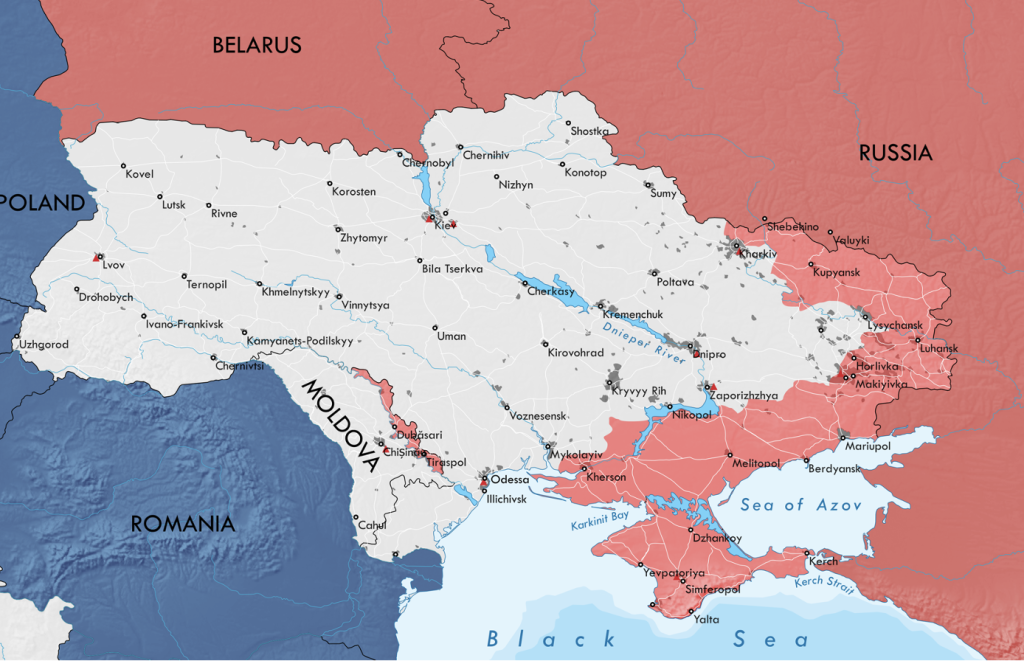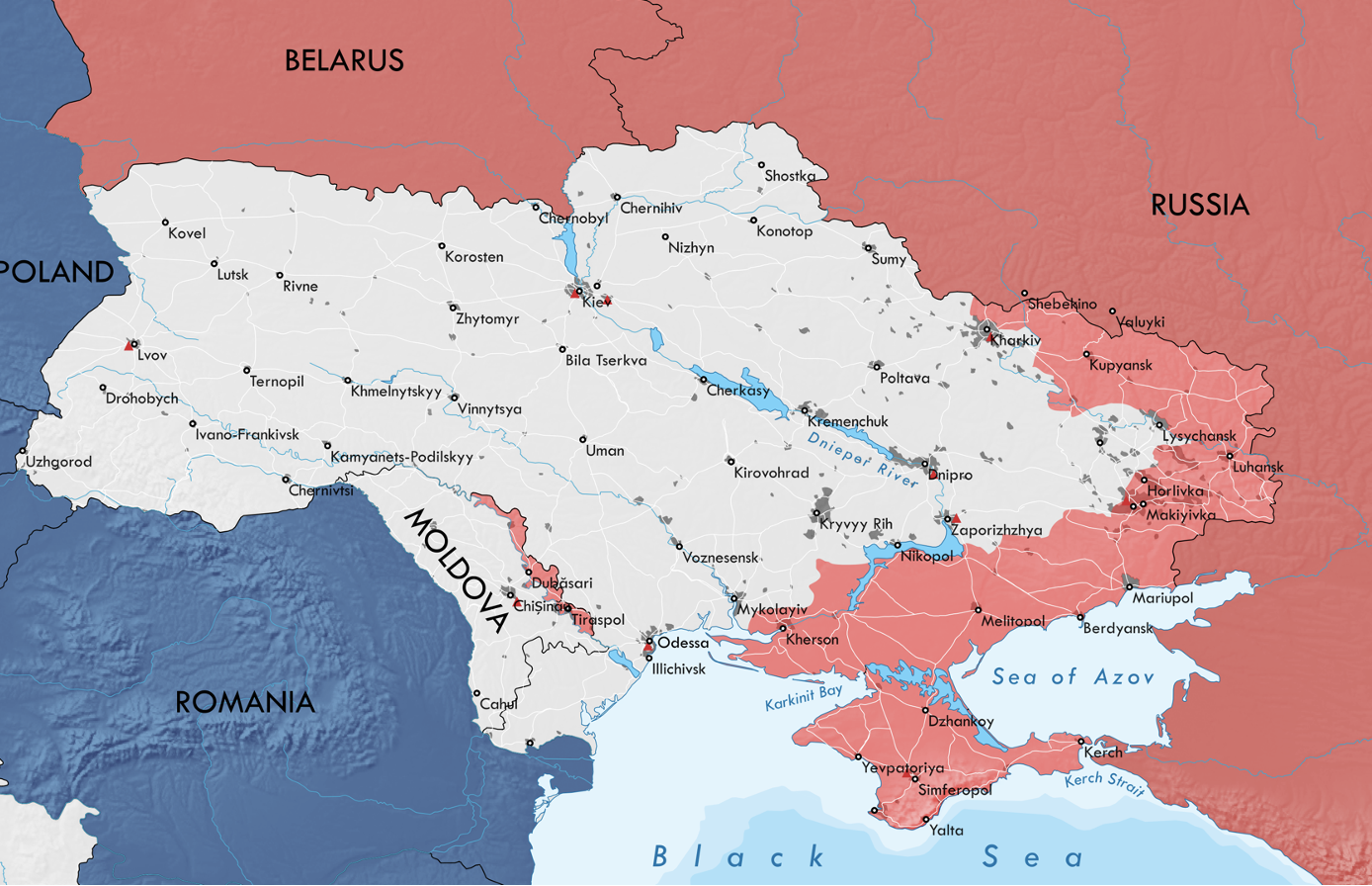Authors: Igor Shchebetun, Greta Bordin, Fabrizio Napoli and Davide Gobbicchi.
Why war is happening, what could justify an invasion of a sovereign independent state such as Ukraine? The only way to answer this question is to look at the situation from Russia's perspective. Because despite the raging battles on the ground, the war is not really about Ukraine, but about Russia and its pursuit of geopolitics.
This concerns the Kremlin and its relationship with the White House. One of Russia's initial demands for de - escalation shortly before the war began was for NATO to wind down its activities in Eastern Europe, and that is what it ultimately comes down to. Geopolitically, the war is more than Ukraine; it is Russia's attempt to restore a multipolar world order that has been lost as a gambler making a living off false hopes. Russia believes that either it must be a world power or it will not be. The collapse of the Soviet Union was a turning point in world geopolitics. No fewer than 14 Union republics seceded and declared sovereignty and independence. The Russian Federation lost centuries of geopolitical struggle. Russia was pushed back to the territorial boundaries of the 18th century. To this day, with the collapse of the USSR come broken promises, falling health care, industrial decline, and kinship ties replaced by hostility and all those glorious technological wonders and infrastructure projects left to rot.
Part of the Russian rationale for invading Ukraine is the core theory The core theory divides the world into three bodies, the first body being the world islands, which consist of Europe, Asia and Africa, the second body refers to shelf islands such as the British islands and the Japanese archipelago, while the third body points to America and Australia as distant islands within these parameters, focusing on the world islands because they are the most populous and resource-rich continent. Imagine if a superstate controlled politics from France to China, from Saudi Arabia to South Africa, this power would have the technological prowess of Europe, the resources of Africa, and the labor force of Asia, and nothing would stand in its way, so whoever controls the world island would have the means to dominate the globe, but within the world island.
There is a heart region that extends from the Volga River to the Yangtze and from the Arctic to the Caspian Sea. This heart region is the area from which one power can For example, Alexander Dugin, who is Russia's most influential political orator, has consistently argued for the creation of a Russian power in Eurasia, while the Russian political elite, known as the siloviki, still adhered to the focal point theory. From St. Petersburg to Kazan and Volgograd extends the Russian core 80 percent of the Russian population lives in this area, and most of the Kremlin's decisions are based on the needs and interests of its core, but the terrain itself is flat, and parts of Europe are part of Russia.

To put pressure on the Russian core from the Swedish invasion in the 18th century to the German invasions in the 20th century many European powers have tried to subdue Russia by going through the Baltics today but Estonia, Latvia and Lithuania are part of Nato, making them beyond the reach of Russian enslavement, however, geopolitics dictates that Russia take over the Baltics if the opportunity presents itself, allowing Russians to connect the Kaliningrad region to mainland Russia. Control of the Baltics would also strengthen Russia's presence and power on the Baltic Sea as a whole, while the Carpathians represent a favorable bridgehead for the Russians, a buffer against the marching armies carpeting If the European plane represents a highway for invading armies, the Carpathians are a speed bump in the middle of that highway whose strategic depth is priceless, and this consideration is the ultimate justification for Russian invasion. Russia's invasion of Ukraine at the same time means that Russia's goal in Ukraine is to take over the whole country, so as much as the rhetoric focuses on the Donbass, Kharkov, Kiev, and Odessa, it misses the more important point from the Russian perspective, they need to advance as far as the Carpathian mountains.
So Russia needs all of Ukraine, but also all of Moldova, when Lukashenko spoke to members of the Belarusian Security Council, the map he used had an arrow going to the Moldovan separatist region of Transnistria, so if Russia's military invasion of Ukraine were more successful, there would be fighting in Moldova. By and large, with the invasion of Ukraine, Russia sought to drop anchor, seizing all of Ukraine and eventually Moldavia. Russia would have restored some of the Soviet borders enough to reduce its European airplane flights to 600 kilometers. which is a significant reduction from the current 2,000 kilometers. Ideally, the Russians would like to advance as far west as they can, preferably capturing all of Poland and the Baltics. If Russia wins, the Baltics and Poland would be next, count on it.
Likewise, if Russia loses the war in Ukraine or can't get everything today, it will try again tomorrow, and no treaties and armistice will last long. Think of the European plane as a chess game where each player seeks to maximize the position of his pawns, strategically placing them the further east NATO moves into the European plane. Eastward on the European plane toward the Russian Federation, the more flexible its strategic planning becomes and the more room for error it gets. For example, to the east of the border with Ukraine, the flat terrain of the European plane continues uninterrupted for 750 kilometers to the shoreline of the Caspian Sea. The Volgograd Gap is fundamental to the existence of the Russian state; if a hostile force closes this gap, it will deprive Russia of its connections to the Caucasus, the Black Sea and the Caspian Sea, and NATO-allied Ukraine will no doubt try to exploit this vulnerability.
A Russian-controlled Ukraine would militarize Poland, Romania, and the Baltic states even more than it does now. Russia believes that it can elevate itself as a leading world power while securing its core demographic space, based on this for Russia it is either expand or die Russian politicians especially given the fact that political legitimacy depends on military conquest.

No comments.